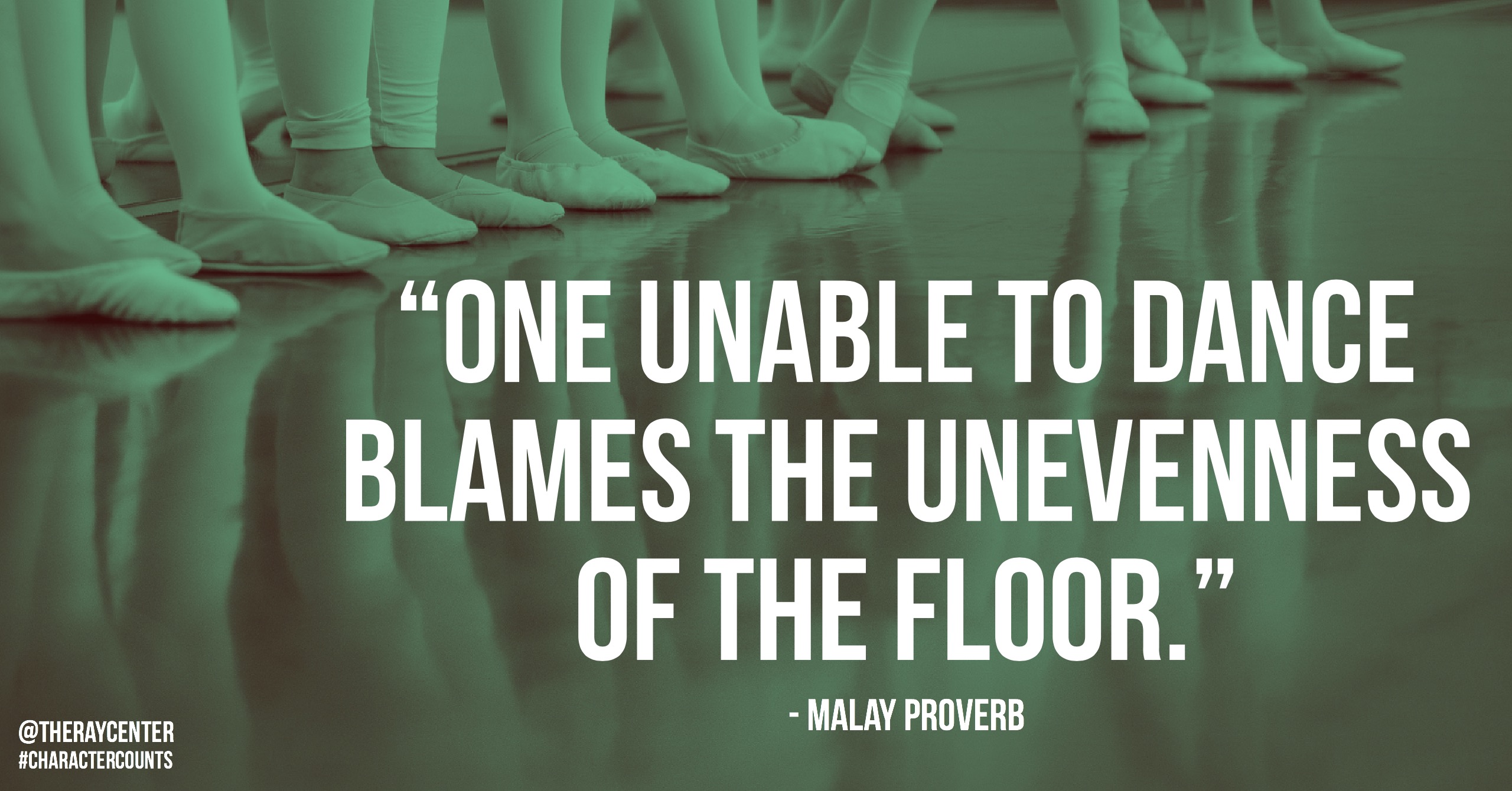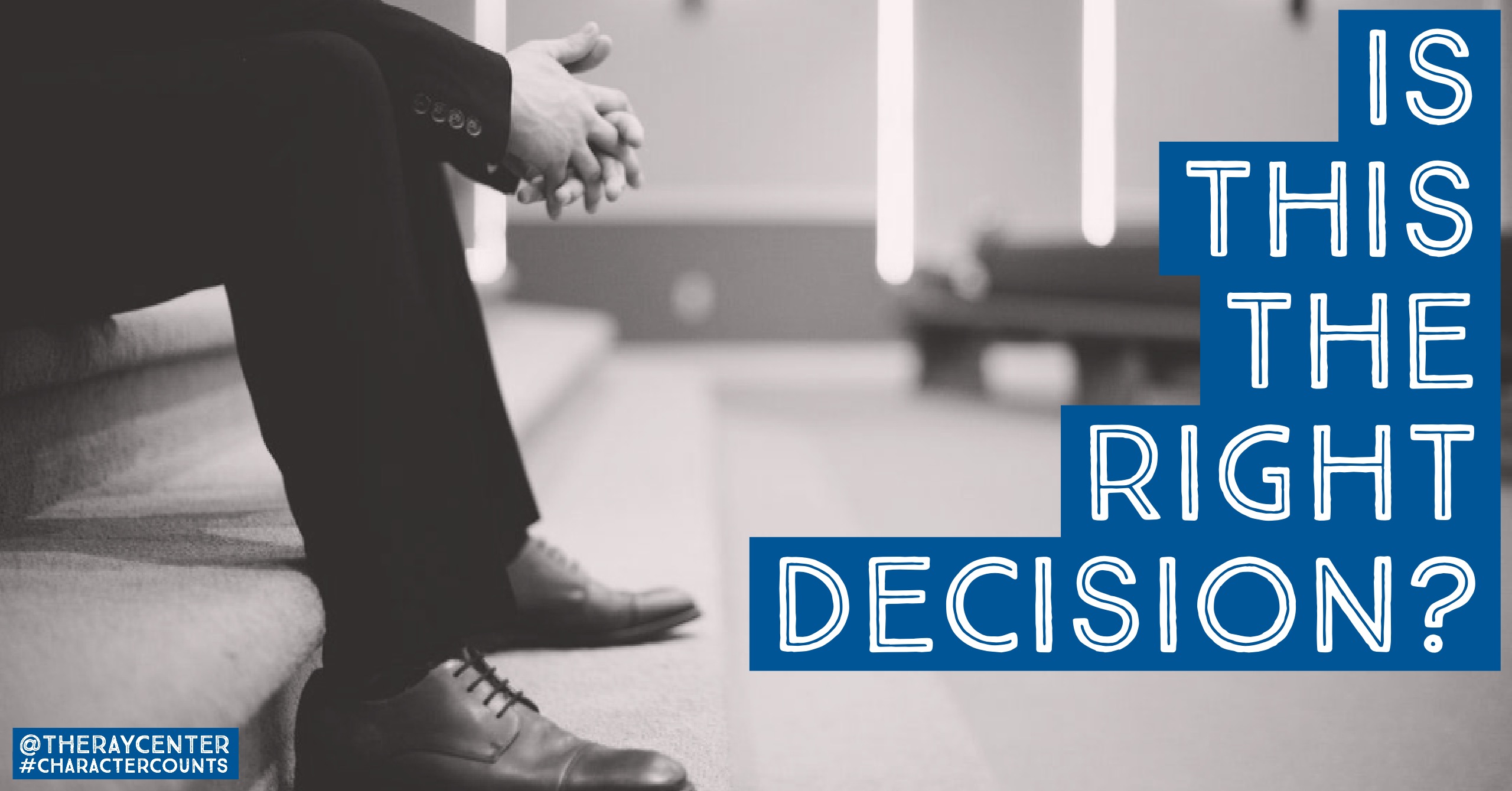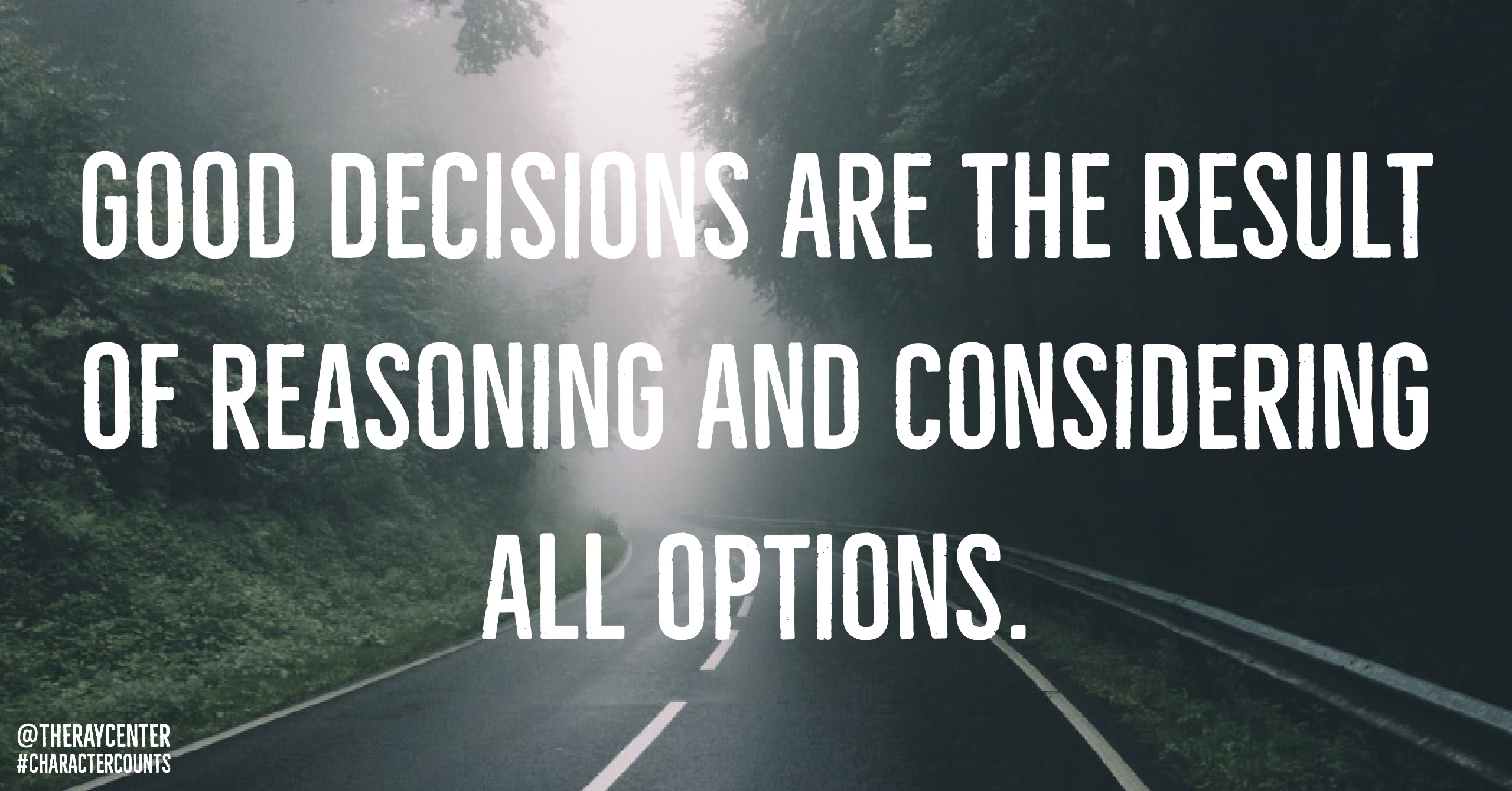Decision-making obstacles

As if making good decisions wasn’t hard enough, there are some obstacles that may get in our way of being accountable for our choices.
Here are a few:
- You’re a bigger one: Have you ever told yourself that your actions aren’t so bad, especially compared to others? Don’t justify your choices based upon someone else’s bad behavior.
- Just this once: You’ll be held responsible for your actions, regardless if you thought you would do it only one time. Something to consider: how many lies does it take before you are a liar?
- I can’t afford to do the right thing: It will never get any easier. If you don’t demand the best from yourself now, will you ever? Being ethical is a matter of habit and conditioning, not a switch you can turn off and on when it is convenient.
- But I have to: Do you really have to? What we often perceive as necessary is rarely needed for survival. What if you couldn’t do what you wanted to do? It’s easy to overestimate the cost of doing the right thing.
- It’s a stupid rule: Well, maybe it is a stupid rule or law. Are you willing to let everyone decide for themselves which rules to follow?
“One unable to dance blames the unevenness of the floor” – Malay proverb
Adapted from the Josephson Institute of Ethics.


